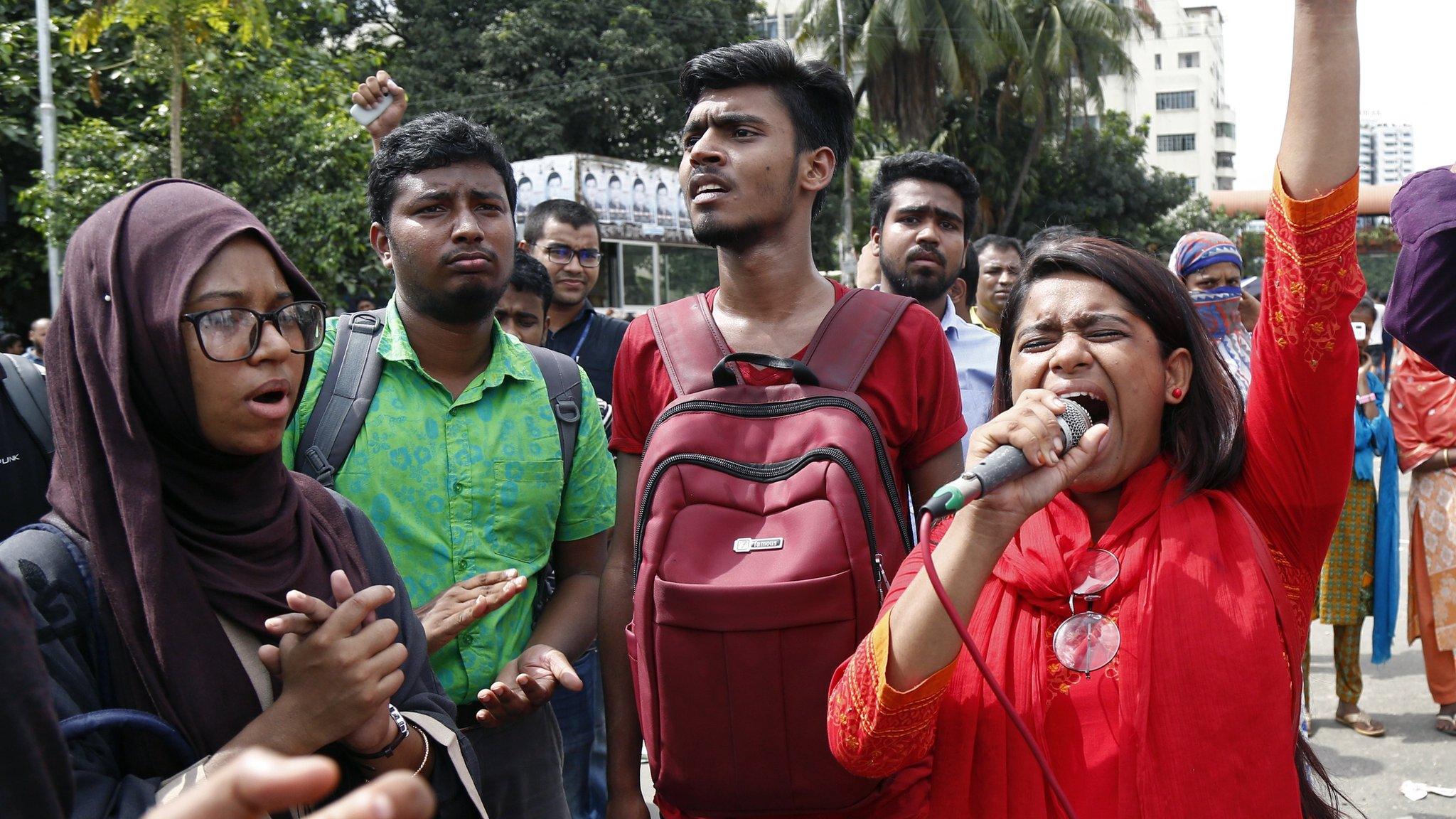Abrar Fahad: Killing of Bangladesh student triggers protests
- Published
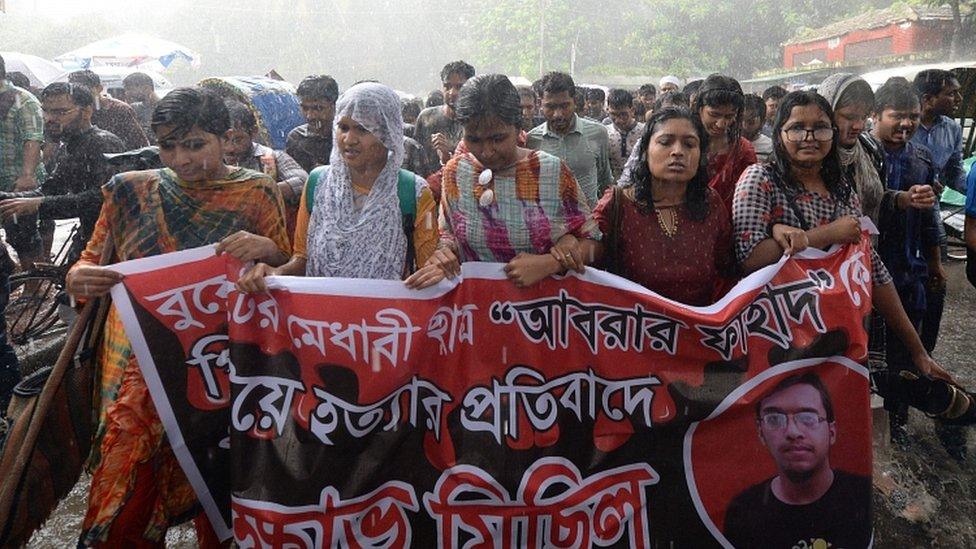
University students in Dhaka are demanding the killers be brought to justice
Students across Bangladesh are protesting after an undergraduate was beaten to death at one of the country's most prestigious universities.
The body of Abrar Fahad, 21, was found in a dormitory days after he posted comments criticising the government.
Several members of the student wing of the governing Awami League have been detained in connection with the death.
The killing has shocked Bangladesh and shone a light on the culture of violence in public universities.
The Bangladesh Chhatra League (BCL), the student wing of the Awami League, has been widely accused of using torture and extortion against students.
The government has promised to bring those responsible for Abrar Fahad's death to justice.
His body was found on Sunday at the Bangladesh University of Engineering and Technology (Buet) in the capital, Dhaka.

University, where violence and torture are common
Analysis by Mir Sabbir, BBC Bengali, Dhaka
Torture of public university students by the student wing of the ruling parties is nothing new. New students are often forced to attend meetings and rallies just to be able to stay in the dormitories. Beating and bullying for having different views or defying the order of the leaders is common inside the universities.
When school students taking part in the 2018 road safety protests were beaten by unknown attackers in helmets, BCL activists were widely blamed.
In the same year, BCL supporters attacked protesting students at Rajshahi University and pictures of one of the victims being beaten with a hammer went viral on social media.
Political parties have been using their student wings as their muscle for a long time. Although the parties are not allowed to have official student wings, their existence is undeniable.
Now even a senior leader of the Awami League has told BBC Bangla that it is time to rethink whether this kind of politics should be supported. Many people in Bangladesh share the same view, not least the parents who are dreaming of sending their children to Buet one day.

On Monday, students in Dhaka and other cities staged street protests, chanting slogans and blocking roads. Protests continued on Tuesday with students at Buet demanding the death penalty for those found guilty of the killing.
Former students and members of the teaching staff also joined the demonstration on the Buet campus.
"This is totally unacceptable that a student will die from torture in a residential hall," said AKM Masud, president of the Buet Teachers' Association, according to Bangladeshi site bdnews24.com.
"Abrar Fahad's death has proved the authorities' complete failure to ensure the safety of students."
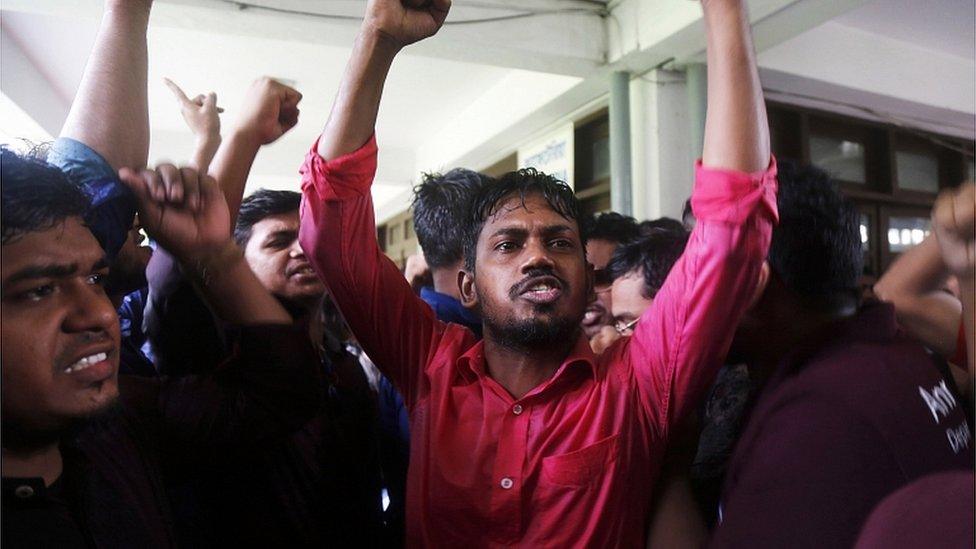
There is widespread anger over Abrar Fahad's death
A police spokesman said that, after examining CCTV footage, investigators detained nine men from Abrar Fahad's dormitory. At least five of them were BCL activists, police added.
By Tuesday the number of arrests had risen to 13, police said, all from Buet. Six more suspects are being sought.
Dhaka deputy police commissioner Munstasirul Islam confirmed to AFP news agency that the student had been beaten to death.
BCL members quoted by local media said that Abrar Fahad had been "questioned" and beaten over alleged links to an Islamist party. That came after he wrote a post on social media criticising the government over a water sharing deal with India.
In a statement, the BCL said that after carrying out investigations it had expelled 11 members of its Buet division, bdnews24.com reported.
- Published5 August 2018
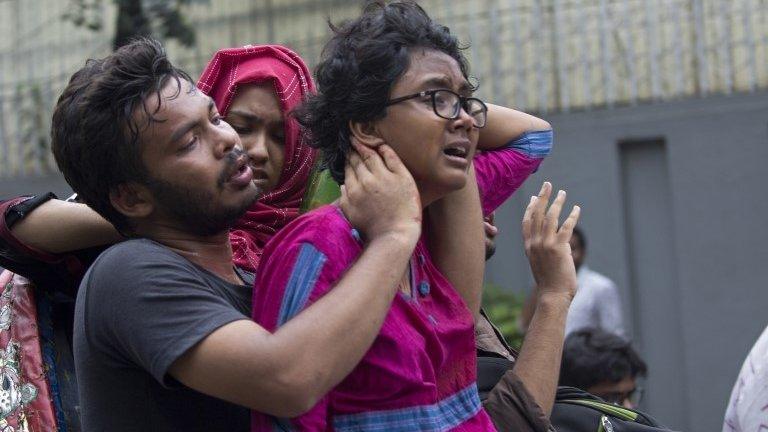
- Published4 August 2018
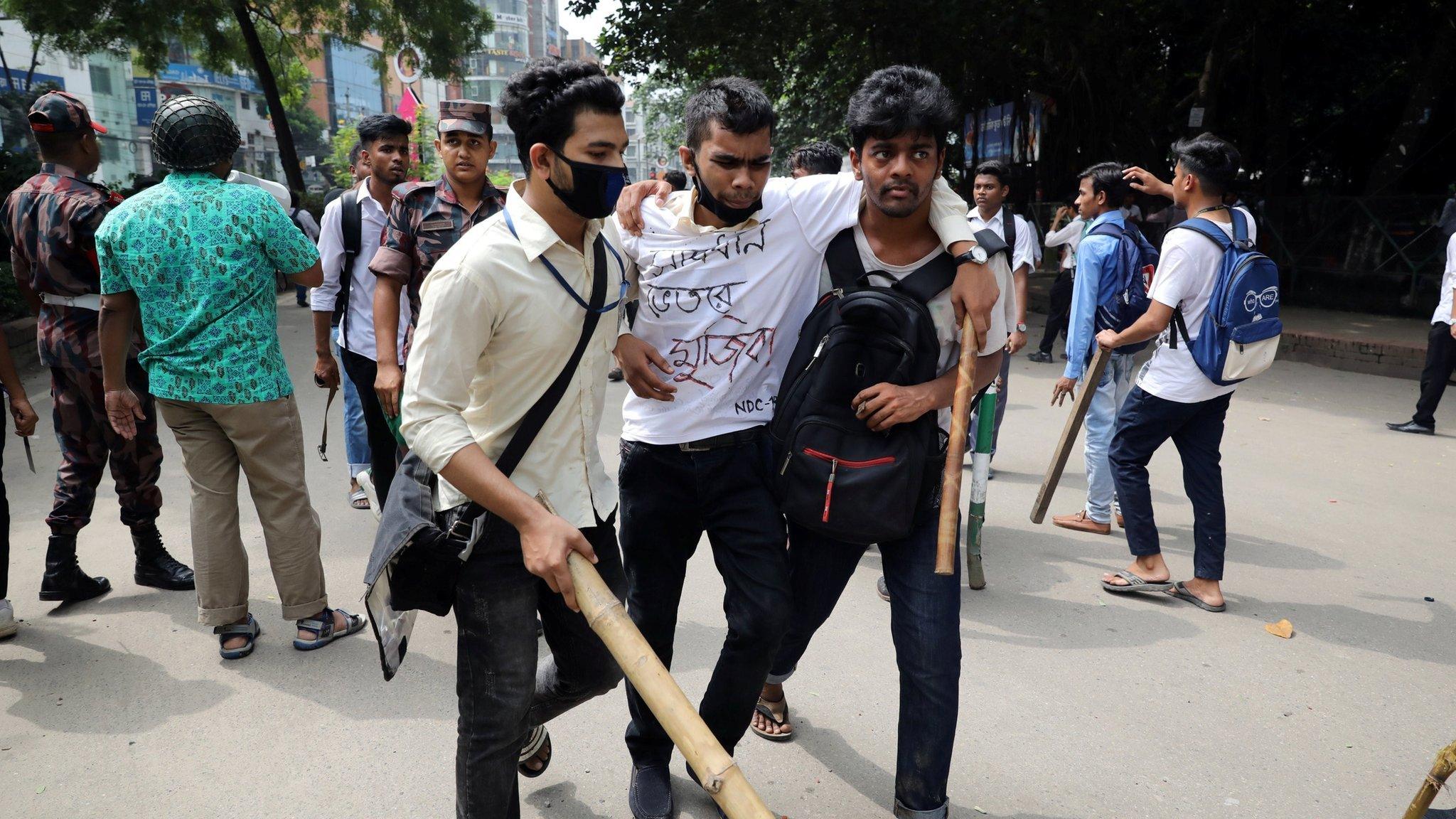
- Published2 August 2018
